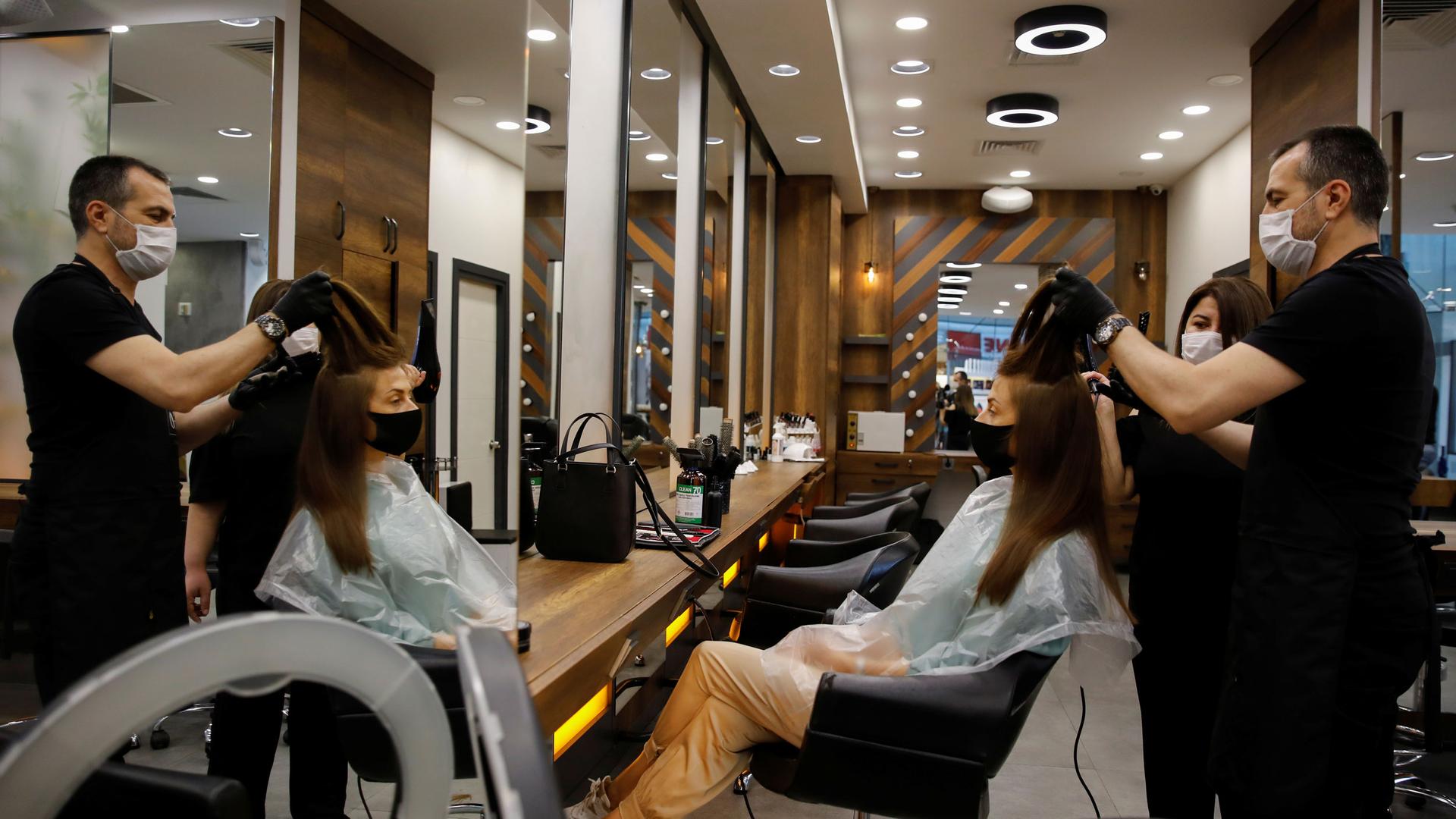Discussion: How do we reopen workplaces safely amid the coronavirus crisis?
Hairdresser Oguz Kutlu gives hair treatment to his customer Elena Kuznetsova, both wearing protective masks, on the first day of the reopening of his hair salon which was closed since March 21 amid the spread of the coronavirus in Istanbul, Turkey, May 11, 2020.
Global alarm was sounded on Monday over a potential second wave of coronavirus cases after Germany, which was relatively successful in slowing the outbreak, reported that infections had accelerated again after the first tentative steps to ease a lockdown.
But in the United States, which has the highest death toll in the world from the coronavirus, President Donald Trump accused Democrats of reopening states too slowly for political advantage, albeit without providing evidence.
News that the “reproduction rate” — the number of people each person with the disease goes on to infect — had surged back to 1.1 in Germany cast a shadow over the reopening of businesses ranging from Paris hair salons to Shanghai Disneyland. A rate that stays above 1 means the virus is spreading exponentially.
Related discussion: What are the potential vaccines and treatments for the coronavirus?
Elsewhere in Europe, Spain and France took major new steps to ease strict lockdowns, while Britain, second only to the US in its death toll, unveiled cautious moves that critics said sent mixed messages.
“Everyone’s a little bit nervous. Wow! We don’t know where we’re headed but we’re off,” said Marc Mauny, a hair stylist who opened his salon in western France at the stroke of midnight.
As some Americans return to workplaces closed by the coronavirus pandemic, employers and employees alike may be wondering how society can do so safely.
As part of our weekly series taking your questions to the experts, The World’s Elana Gordon moderated a discussion with Joseph Allen, assistant professor of exposure assessment science and director of the Healthy Buildings Program at the Harvard T.H. Chan School of Public Health who will laid out a possible framework for the phased reopening of workplaces.
Our coverage reaches millions each week, but only a small fraction of listeners contribute to sustain our program. We still need 224 more people to donate $100 or $10/monthly to unlock our $67,000 match. Will you help us get there today?
